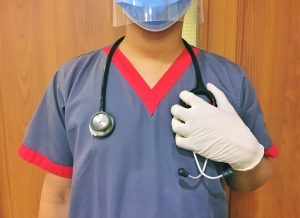Working as a Registered Nurse (RN)
 Registered Nurses (RN) have completed at least an Associate’s Degree in Nursing and are now licensed by the State to practice nursing. However, many hospitals and healthcare facilities prefer a BSN; this is one of the reason why the RN to BSN program has become so popular for current working nurses. Following the State’s Scope of Practice and completing an internship program will ensure the RN is on his or her way to a successful career. But exactly what to RN’s do and where do they work?
Registered Nurses (RN) have completed at least an Associate’s Degree in Nursing and are now licensed by the State to practice nursing. However, many hospitals and healthcare facilities prefer a BSN; this is one of the reason why the RN to BSN program has become so popular for current working nurses. Following the State’s Scope of Practice and completing an internship program will ensure the RN is on his or her way to a successful career. But exactly what to RN’s do and where do they work?
What Do RNs Do?
A standard set of skills is learned in nursing school and every RN knows how to do these certain things upon graduation. The school, and once licensed, the State, feels confident in the nurse’s ability to perform these tasks. Upon graduation and passing the NCLEX-RN exam every registered nurse is expected to be proficient and comfortable with these skills.
Standard skills sets include, but are not limited to:
- Administering and monitoring medications
- Inserting, managing, and discontinuing intravenous catheters and intraurethral catheters
- Developing a plan of care for each patient
- Proper assessment and management of all patient populations with appropriate intervention
- Take vital signs, recognize and address abnormalities
- Admitting and discharging a patient safely and appropriately
- Accurate documentation
- Safe patient transfers into and out of bed and chair
- Perform basic life support (BLS)
- Wound care
- Feeding, dressing, and performing hygiene
- Ensuring patient safety, commonly known as ‘do no harm,’ or nonmaleficence, which is the cardinal rule of nursing
No matter which specialty the nurse chooses the standard skills learned in nursing school will be used in just about every healthcare setting. Interning at a facility and learning a new specialty will require the nurse to add to this standard skill set and broaden his or her repertoire of knowledge and skills.
RN Job Description
An integral part of the healthcare team, the registered nurse ensures that each patient receives direct care that is conducted within the standards of care and hospital policies. While jobs do vary from clinic to clinic, most tasks that an RN is asked to perform will look like this:
*Please note that every RN must have an active nursing license in good standing for the state in which they reside and practice. Licensure is the first step in a lifelong and satisfying professional career path in healthcare.
- Performs nursing visits within scope of practice and assists with developing group visits with manager and providers.
- Demonstrates the appropriate knowledge and skills to coordinate and evaluate patient care
- Works proactively as part of a team with physicians, professionals and staff members
- Exhibits ethical practice with policies and procedures in nursing care at all times
- Is adept at integrating and enforcing regulatory requirements in relation to nursing
- Is able to record and maintain appropriate documentation for records keeping practices
- Is able to follow physician’s written orders
- Arranges further medical attention as required by patients and advocates
- Maintains patient confidentiality while develop professional and positive relationships with patients, advocates and family members
- Is committed to professional development, including current practices for OSHA and seclusion and restraint training
- Possesses adequate computer experience to complete daily duties as well as process health records
- Coordinates critical results in a timely manner
- Can interpret documents at a high level of accuracy
- Possesses excellent communication skills
A senior registered nurse often has an expanded scope of duties or an administrative role as a charge nurse, nurse midwife, nurse practitioner, or other APRN specialty. All the roles require an RN license in good standing as well as several years’ experience, extended schooling and professional development to meet the requirements of the role and manage reporting staff. Jobs vary between jurisdictions and venues but a senior RN will likely encounter the following tasks in their job:
- Provides oversight to medical assistants and ADNs to ensure patient care
- Attends meetings, prepares reports, and assists in case management
- Manages staff workloads; adjusts staffing to meet patient need
- Mentors others in safe nursing patient care
- Serves as a consultant, advocate and intermediary for patients, caregivers and hospital staff
- Is an intuitive and experienced manager of chronic care conditions who puts forth evidence-based solutions
- Manages a variety of concurrent programs and projects effectively
- Models use of time, equipment and supplies to colleagues and patients for maximum effectiveness
- Guides staff to perform procedures as per the patient care framework
- Promotes progressive learning and development as well as proactive and positive knowledge transfer.
- Takes a proactive leadership role to resolve patient and family situations when consulted by junior nurses or staff
- Creates processes and with authority, assigns them to teams and individuals
- Is a model for delivery of care and excellence in customer service
- Experience with quality improvement or standards activities is preferred.
- Demonstrates an ability to use computer technology to capture, manage, analyze, report, and present data.
- Has excellent analytical and problem solving abilities.
- Has an understanding of health administration database processes and structures
- Is able to work effectively under pressure and with deadlines
Top of Form
Bottom of Form

